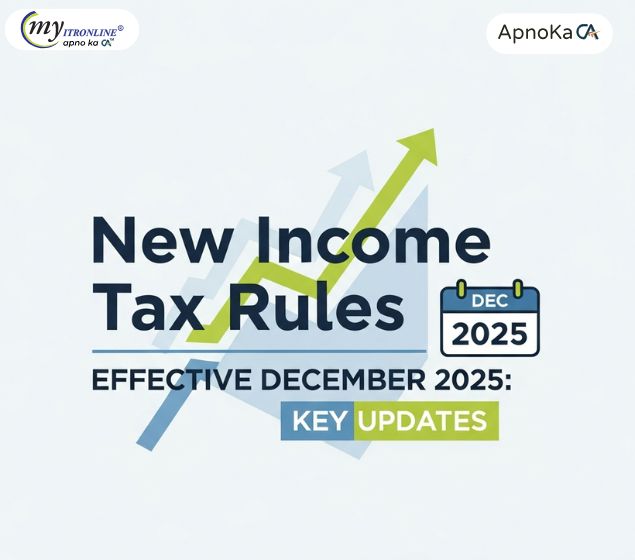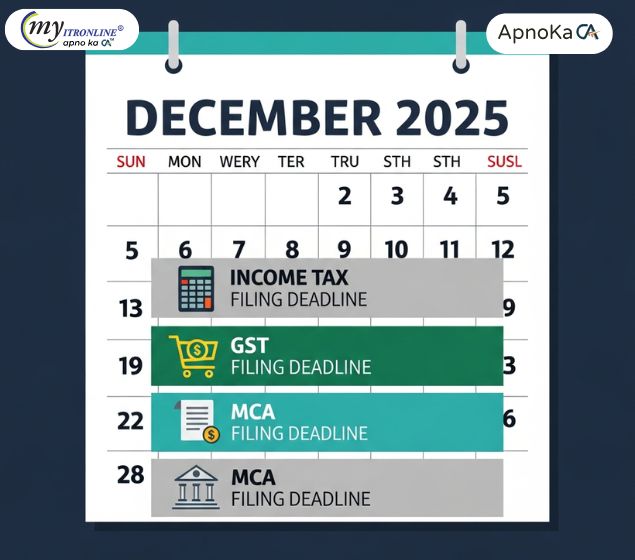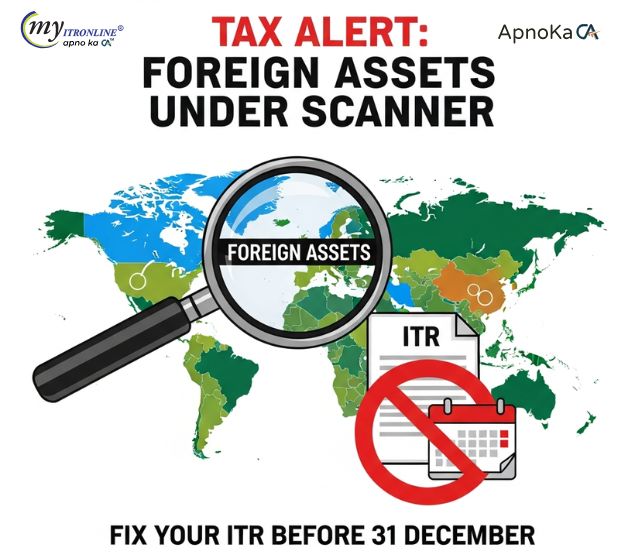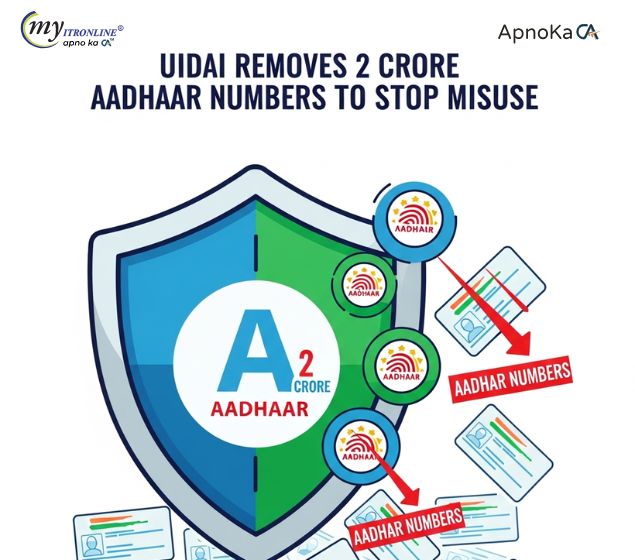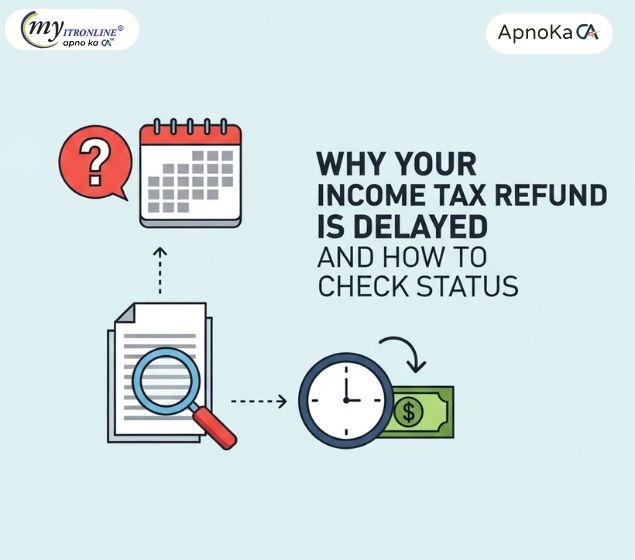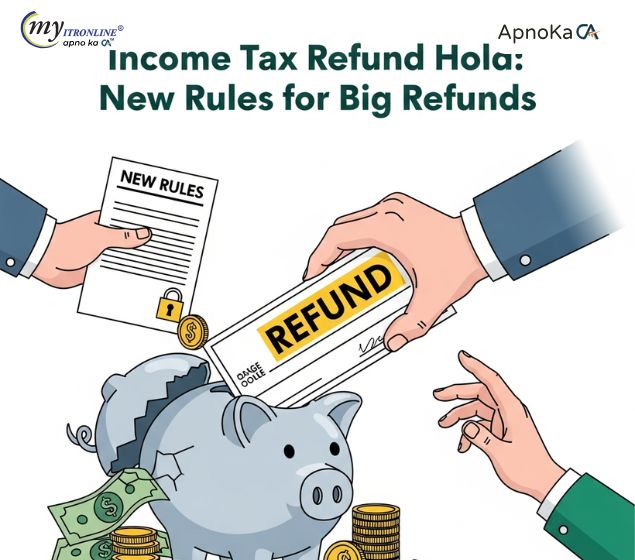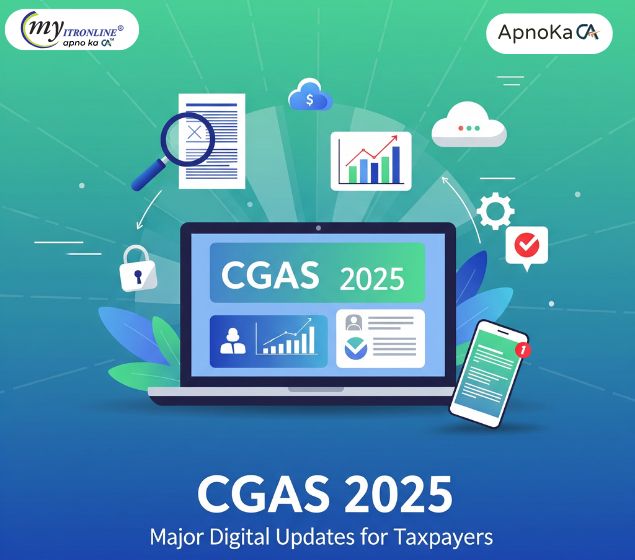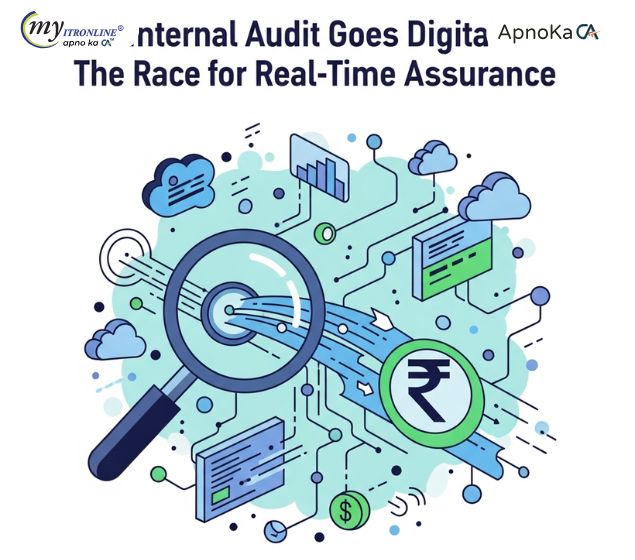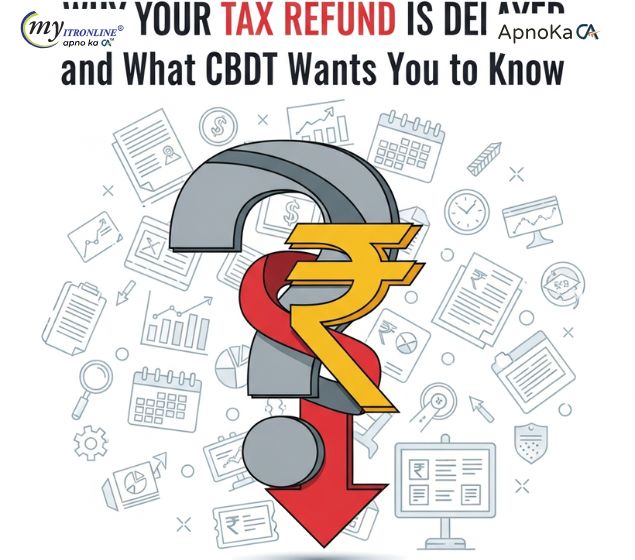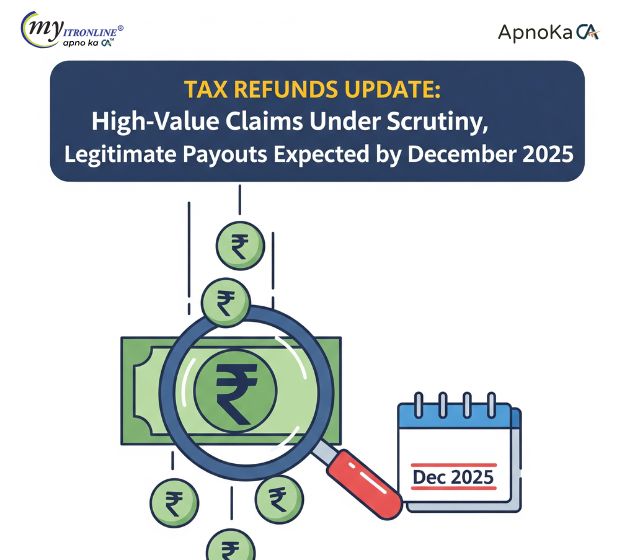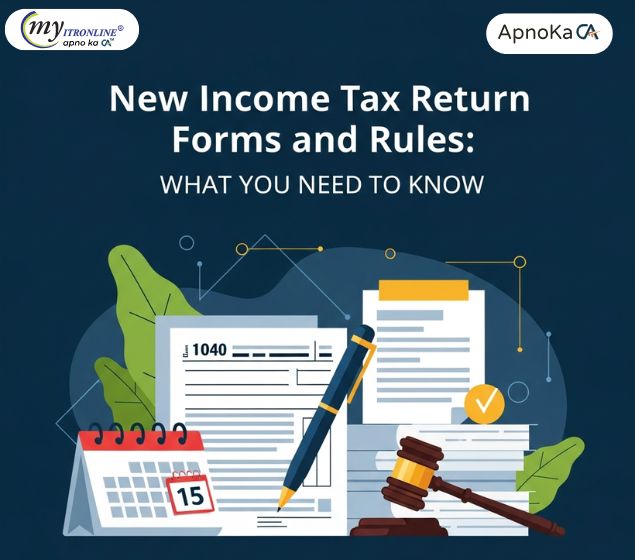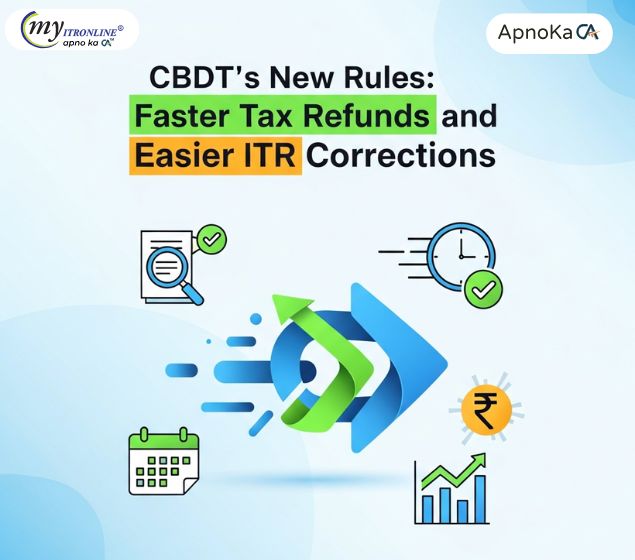New Tax Rules for NRIs (2024): Your Refund Explained
This comprehensive blog post details the crucial updates to India's income tax refund rules for Non-Resident Indians (NRIs for Assessment Year 2025-26). It highlights the new "No Dues, No Refund" policy, emphasizing the necessity of clearing all outstanding tax demands and compliance issues for refund processing. The guide also covers revisited residential status rules, the default new tax regime, streamlined refund processing, and the vital role of Form 26AS and AIS/TIS. Special attention is given to capital gains and TDS on property sales, a common source of NRI refunds, outlining critical compliance steps. Finally, it provides actionable advice for NRIs to ensure their tax refunds are processed smoothly and without delays.
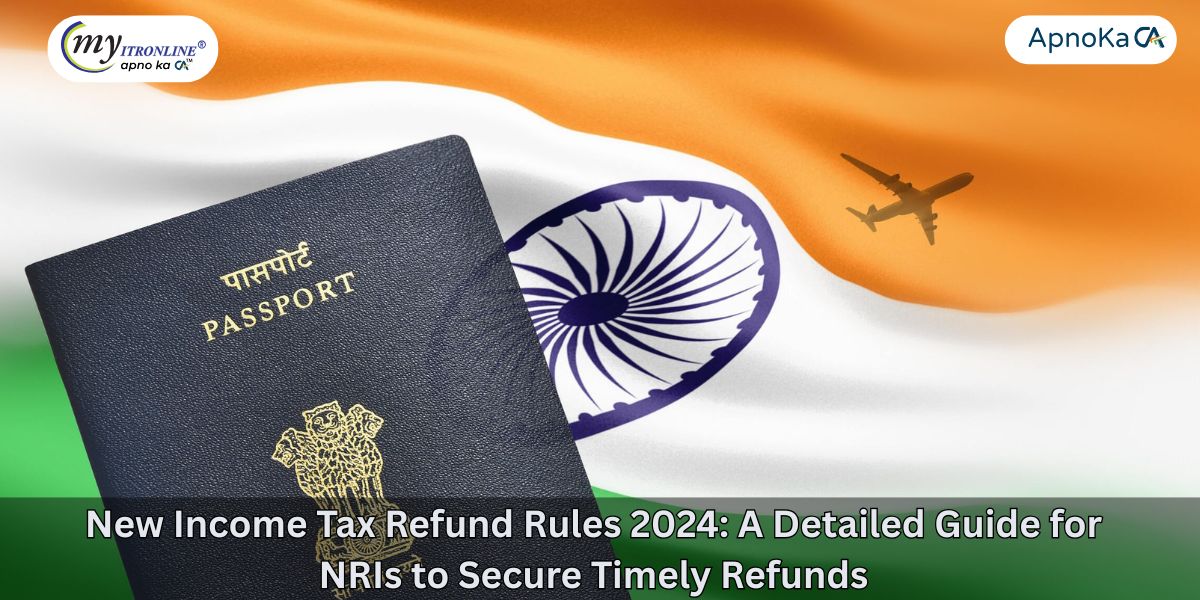
For Non-Resident Indians (NRIs) with financial ties to India, navigating the Indian income tax system is an ongoing challenge. The year 2024 (Assessment Year 2025-26) brings significant changes that will affect how tax refunds are processed. NRIs need to pay attention to these updates to avoid delays and secure a smooth refund.
If you're an NRI expecting a tax refund from India, this blog will outline the important updates and provide practical steps to prevent delays and ensure compliance.
Understanding the Landscape: Why NRIs Often Get Refunds
NRIs often find themselves in a position to receive refunds for several reasons:
- Higher TDS Deductions: Income from sources like property sales, capital gains on shares or mutual funds, and fixed deposits in India usually faces higher Tax Deducted at Source (TDS) rates for NRIs. After accounting for eligible deductions, exemptions, and double taxation agreements (DTAAs), the actual tax owed may be lower, resulting in excess TDS.
- Capital Gains: NRIs selling property or other assets in India often deal with substantial TDS deductions at the time of sale. After calculating actual capital gains and applying exemptions (like Section 54 or 54EC), the tax owed can be much lower than the TDS already deducted.
- Interest Income: Interest earned on NRO accounts or fixed deposits in India is subject to TDS. If the NRI's total income in India is below the taxable threshold, or if DTAA benefits reduce their tax liability, a refund will be due.
The Big Change in Refund Processing: No Dues, No Refund
One of the most significant shifts affecting tax refunds for both residents and NRIs, starting April 1, 2024 (for AY 2025-26), is the Income Tax Department's stricter approach: no refund will be processed until all outstanding tax dues and compliance issues are resolved.
In the past, minor tax demands or pending notices might have been overlooked or automatically adjusted. However, the department is now strictly enforcing this rule. This means:
- Any Pending Tax Demand: Even a small outstanding tax demand from previous years can delay your current refund.
- Unaddressed Compliance Notices: If you have received any notices (such as under Section 139(9) for a defective return or Section 143(1) requiring clarification) and haven't addressed them, your refund will be blocked.
This change aims to streamline the tax system, minimize pending disputes, and ensure taxpayers fulfill their obligations promptly. For NRIs, who may be physically distant or less familiar with Indian tax notices, this becomes even more critical.
Other Key Changes and Considerations for NRIs in 2024-25
Aside from the "no dues, no refund" policy, several other aspects are relevant for NRIs concerning tax and refunds:
1. Residential Status Rules (Revisited)
While not directly a refund rule, knowing your residential status is essential to understanding your tax liability and refund eligibility. The rules for determining NRI status include important details:
- 182-Day Rule: You are generally considered an NRI if you are in India for less than 182 days during the financial year.
- 60-Day + 365-Day Rule (Modified): Previously, an Indian citizen or Person of Indian Origin (PIO) was viewed as a resident if they stayed in India for 60 days or more in the financial year and 365 days or more in the previous four financial years.
Crucial Change: For Indian citizens or PIOs whose total income (excluding foreign sources) exceeds INR 15 lakh, the 60-day period is increased to 120 days. This means if such an individual stays in India for 120 days or more but less than 182 days, they may be classified as a Resident but Not Ordinarily Resident (RNOR), which impacts their taxability (only Indian income is taxable). - Deemed Resident: An Indian citizen whose total income (excluding foreign sources) exceeds INR 15 lakh and who is not liable to tax in any other country due to domicile or residence is "deemed to be resident" in India. They will be classified as RNOR.
Why this matters for refunds: Incorrectly determining your residential status can lead to wrong tax calculations, resulting in underpayment (leading to demands) or overpayment (resulting in a refund, but subject to correct status).
2. Default New Tax Regime
From AY 2024-25 (FY 2023-24), the New Tax Regime (Section 115BAC) is now the default tax regime. While NRIs can still choose the Old Tax Regime, they must do so explicitly when filing their Income Tax Return.
- Impact on Refunds: The choice of regime significantly affects your deductions and tax brackets. If you accidentally file under the default new regime without claiming deductions available under the old regime, you might miss out on a larger refund.
-
Note for NRIs: The benefit of a tax rebate under Section 87A on income up to Rs. 7 lakh (or Rs. 12 lakh, as proposed from FY 2025-26/AY 2026-27 under the new regime) generally does not apply to NRIs unless stated otherwise. NRIs mainly pay tax on their Indian-sourced income at the relevant rates or as per DTAA provisions.
3. Streamlined Refund Processing
The Income Tax Department has improved the average time taken to process Income Tax Returns (ITRs) and issue refunds. While it previously took months, the current processing time is often cited as much shorter (for example, 10-30 days for many cases), assuming there are no discrepancies.
For NRIs, this means:
- Ensure your bank account in India (NRE/NRO) is pre-validated on the e-filing portal. Refunds are credited directly to pre-validated accounts.
- E-verify your return promptly. Refunds begin processing only after successful e-verification.
4. Importance of Form 26AS and Annual Information Statement (AIS)/Taxpayer Information Summary (TIS)
These documents are vital for checking your income and TDS details.
- Form 26AS: This statement shows all tax deducted or collected against your PAN. For NRIs, especially those selling property, it's important to verify that the TDS deducted by the buyer (using Form 27Q, not Form 26QB for NRIs) is accurately reported in your 26AS. Any discrepancies here can directly affect your refund claim.
- AIS/TIS: These statements provide a broader range of financial information reported by various entities (like banks and mutual funds). NRIs should reconcile their reported income and deductions with the information in AIS/TIS to prevent mismatches that might lead to notices or refund blocks.
5. Capital Gains and TDS on Property Sales (Crucial for NRIs)
When an NRI sells property in India, the buyer usually must deduct TDS at 20% (for long-term capital gains) or 30% (for short-term capital gains) under Section 195.
- Key Point for Refunds: Often, the actual capital gains tax owed by the NRI is much lower than the 20% or 30% TDS deducted due to exemptions (like Sections 54 and 54EC) or indexation benefits. This typically results in a large refund claim.
- Procedural Compliance is Important:
- Ensure the buyer deducts TDS using Form 27Q and has a valid TAN (Tax Deduction Account Number). Form 26QB is for resident sellers and will cause issues if used.
- Obtain Form 16A from the buyer as proof of TDS deduction.
- Check your Form 26AS to confirm the TDS credit is accurately recorded under your PAN.
- If you plan to claim exemptions (like under Sections 54 or 54EC), ensure you reinvest within the required timeframes and document everything properly.
6. Extended ITR Filing Deadlines (for AY 2025-26)
For this filing season, the due date for submitting ITR for FY 2024-25 (AY 2025-26) for non-audit cases (most NRIs fall under this) has been extended from July 31, 2025, to September 15, 2025. This gives you more time, but you still need to act promptly.
Actionable Steps for NRIs to Ensure Smooth Refunds
- Check for Outstanding Tax Demands: Log in to the Income Tax e-filing portal (incometax.gov.in). Go to "e-Proceedings" then "Outstanding Tax Demand" to see if you have any past dues. Resolve them immediately.
- Respond to Pending Compliance Notices: Check the "Pending Actions" or "e-Proceedings" section for any unresolved notices (like under Sections 139(9) or 143(1)). Reply promptly with the necessary information or documents.
- Pre-validate Your Indian Bank Account: Make sure your NRE/NRO bank account linked to your PAN is pre-validated on the e-filing portal. This is required for direct credit of refunds.
- Verify Form 26AS and AIS/TIS: Before filing your return, carefully check your Form 26AS for accurate TDS deductions. Also, review your AIS and TIS for consistency with your income claims. Address any discrepancies proactively.
- Choose the Correct Tax Regime: Although the new regime is default, evaluate whether the old regime, with its available deductions (like 80C, 80D, and 24(b) for housing loan interest), would benefit you more. Make your choice clear when filing.
- Careful ITR Filing: Use the right ITR form (typically ITR-2 for salaried or non-business income, ITR-3 for business or professional income). Ensure all income, deductions, and TDS credits are correctly reported.
- E-Verify Your Return Promptly: After filing, e-verify your ITR using Aadhaar OTP, net banking, or by sending the signed ITR-V to CPC, Bengaluru. Your refund process only starts after verification.
- Seek Professional Help: Indian tax laws for NRIs can be complicated. If you have significant transactions, multiple income sources, or face challenges, consult a qualified Chartered Accountant (CA) or tax advisor who specializes in NRI taxation. They can assist with correct filing, DTAA claims, and resolving compliance issues.
Conclusion
The new income tax refund rules, especially the "no dues, no refund" policy, emphasize the importance of compliance and timely resolution of tax matters by the Indian Income Tax Department. For NRIs, who often deal with higher TDS deductions and specific tax rules, engaging proactively with tax obligations is more important than ever. By understanding these key changes and following these steps, NRIs can ensure their tax refunds are processed smoothly and without delays, allowing them to manage their finances effectively across borders.
FILING YOUR INCOME TAX RETURN F.Y 2024-25 (A.Y. 2025-2026) WITH MYITRONLINE
The income tax filing deadline is right around the corner. If you haven’t filed yet, do it today with Myitronline! Avoid last minute rush and file your tax return today on MYITRONLINE in Just 5 mins.(www.myitronline.com)
If you are looking for eCA assistance to file your income tax return/ GST, you can opt for MYITRONLINE eCA assisted plan starting
Upload Salary Individual Form-16
If you have any questions with filing your tax return, please reply to this mail. info@myitronline.com OR call 9971055886,8130309886.
Note-All the aforementioned information in the article is taken from authentic resources and has been published after moderation. Any change in the information other than fact must be believed as a human error. For queries mail us at marketing@myitronline.com
Krishna Gopal Varshney
An editor at apnokacaKrishna Gopal Varshney, Founder & CEO of Myitronline Global Services Private Limited at Delhi. A dedicated and tireless Expert Service Provider for the clients seeking tax filing assistance and all other essential requirements associated with Business/Professional establishment. Connect to us and let us give the Best Support to make you a Success. Visit our website for latest Business News and IT Updates.
Leave a reply
Your email address will not be published. Required fields are marked *Share this article
Krishna Gopal Varshney, Founder & CEO of Myitronline Global Services Private Limited at Delhi. A dedicated and tireless Expert Service Provider for the clients seeking tax filing assistance and all other essential requirements associated with Business/Professional establishment. Connect to us and let us give the Best Support to make you a Success. Visit our website for latest Business News and IT Updates.
View articles








